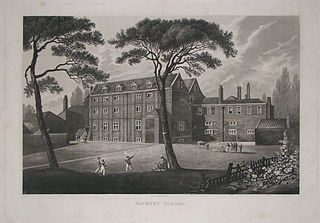Related Research Articles

Bladen County is a county located in the U.S. state of North Carolina. As of the 2020 census, the population was 29,606. Its county seat is Elizabethtown. The county was created in 1734 as Bladen Precinct and gained county status in 1739.
John Taylor, Johnny Taylor or similar is the name of:
Charles Moore may refer to:

Earl of Harewood, in the County of York, is a title in the Peerage of the United Kingdom.

Edward Lascelles, 1st Earl of Harewood was a British landowner, art collector, peer and, before which, member of parliament.

William Lee Antonie was an English politician.
Cromartyshire was a county constituency of the House of Commons of Great Britain from 1708 until 1800, and of the House of Commons of the United Kingdom from 1801 to 1832.

The Molasses Act 1733 was an Act of the Parliament of Great Britain that imposed a tax of six pence per gallon on imports of molasses from non-British colonies. Parliament created the act largely at the insistence of large plantation owners in the British West Indies. The Act was passed not to raise revenue but to regulate trade by making British products cheaper than those from the French West Indies. The Act greatly affected the significant colonial molasses trade.
Thomas Bladen was a colonial governor in North America and politician who sat in the British House of Commons between 1727 and 1741. He served as the 19th Proprietary Governor of Maryland from 1742 to 1747.
Amersham, often spelt as Agmondesham, was a constituency of the House of Commons of England until 1707, then in the House of Commons of Great Britain from 1707 to 1800 and finally in the House of Commons of the United Kingdom from 1801 to 1832. It was represented by two Members of Parliament (MPs), elected by the bloc-vote system.
Lanark Burghs was a district of burghs constituency of the House of Commons of the Parliament of the United Kingdom from 1708 to 1832, representing a seat for one Member of Parliament (MP).

Lord Charles Spencer PC was a British courtier and politician from the Spencer family who sat in the House of Commons between 1761 and 1801.
William Mellish (1764–1838) was an English Tory politician and banker.

Sir Alexander Allan, 1st Baronet was a British painter and politician.

Newcome's School was a fashionable boys' school in Hackney, then to the east of London, founded in the early 18th century. A number of prominent Whig families sent their sons there. The school closed in 1815, and the buildings were gutted in 1820. In 1825 the London Orphan Asylum opened on the site. Today the Clapton Girls' Academy is located here.
In the Scottish church of the 18th and 19th centuries, a burgher was a person who upheld the lawfulness of the burgess oath.
Colonel Martin Bladen (1680–1746) was a British politician who sat in the Irish House of Commons from 1713 to 1727 and in the British House of Commons from 1715 to 1746. He was a Commissioner of the Board of Trade and Plantations, a Privy Councillor in Ireland and Comptroller of the Mint.
Sir William Dunkin was an Irish barrister and judge in Bengal.
Henry Monteith of Carstairs (1764–1848) was a Scottish businessman and Tory politician who twice served as Lord Provost of Glasgow from 1814 to 1816 and 1818 to 1820, and as MP for Linlithgow 1820 to 1826 and 1830 to 1831.
John Broadhurst was a Whig politician and the Member of Parliament (MP) for Weymouth and Melcombe Regis between October 1812 and June 1813, Hedon from December 1813 to June 1818 and Sudbury from June 1818 to March 1820.